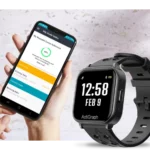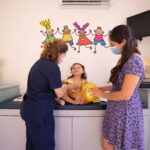NonAlcoholic SteatoHepatitis (NASH), now called Metabolic Dysfunction-Associated SteatoHepatitis (MASH), affects almost 115 million adults globally and is the most severe form of NonAlcoholic Fatty Liver Disease (NAFLD)/Metabolic Dysfunction-Associated Liver Disease (MASLD), conditions in which the liver builds up excessive fat deposits. The new nomenclature (MASH/MASLD) encompasses patients who have hepatic steatosis and have at least one of five cardiometabolic risk factors.
This disease is now considered a fast-growing epidemic and public health concern and is highly associated with obesity and diabetes. Through its association with fatigue, intense itching, abdominal swelling, bruising, and bleeding, and because of the significant behavioral consequences of the disease, this pathology is considered to have a significant impact on patients’ quality of life. At least 20% of those with NAFLD will develop NASH, and patients progressing to late-stage NASH often require complex, invasive, and expensive procedures such as liver transplant and bariatric surgery. Therefore, not only does an increasing number of NASH cases negatively impact an increasing number of patients’ quality of life, but it also has a significant economic impact for patients and their families, payers, and governments.
NAFLD also affects children, with ~10% of American children (6 million kids 2-19 years of age) developing the disease, which makes it the most common cause of chronic liver disease in children in the U.S. When progressing to NASH, the disease can lead to cirrhosis, liver cancer, and ultimately result in the need for liver transplantation.
Despite the strong medical need, there are very few approved treatments for NASH. Although many companies have attempted to develop drugs for the treatment of NASH, only a few candidates are in phase 3 development.
NASH/MASH clinical research landscape
- Although rising, the number of interventional clinical trials for potential NASH treatments remains low: 334 interventional phase II and III NAFLD/NASH protocols were registered on clinicaltrials.gov as of July 29, 2022
- Remarkably, only 5% of all registered protocols report PROs as outcomes of interest. The most common instrument for collecting PRO data was the SF-36, which was planned to be used in 8 (2,4%) trials.
- The NASH-CHECK, which is the only NASH specific PRO as of today, was included in 2 (0.6%) protocols.
The fact that only 5% of the NAFLD/NASH protocols registered on ct.gov include PRO evaluation reveals a lack of patient-centric appraisals in the quest for treatments against the most common chronic liver disease, one of the most prevalent chronic conditions worldwide.
Even though NAFLD and NASH have a remarkable impact on patient quality of life, the number of clinical trials including PROs has barely increased in recent years (from 0 to only a small number of questionnaires), whereas the number of clinical trials has increased from 15 protocols in 2013 to 45 in 2019.
There is a clear need for more clinical research into NASH/NAFLD, and an associated need to include patient perspectives by adding ePROs to the clinical research protocols.
The need for more ePRO in NASH/MASH clinical trials
Including more ePRO in NASH trials will allow information beyond NAFLD-focused metrics to be recorded, and help the scientific community expand its knowledge and understanding of what matters most to NAFLD and NASH patients.
Symptoms of NASH can vary in nature and intensity, and so it is important to evaluate them regularly in a clinical trial. Widening the scope of the ePROs used will mean that areas where symptomatology matters for a given patient are not missed.
- ePROs such as Patient Global Impression (PGI) scales, although generic, will allow a patient’s own assessment of their clinical status to be obtained. Measuring changes in clinical status (PGI-C), disease severity (PGI-S), or disease improvement (PGI-I) will bring a patient’s overall self-assessment that can be compared with the clinician’s global impression (CGI) to instruct study endpoints.
- The SF-36 and SF-12 generic scales are the most commonly used in NASH; however, although they explore several domains, allowing areas where the patient’s perceived limitations are mostly important to be recorded, they are not disease-specific and the scores they generate are weakly associated with clinical assessments. This supports the need for more disease-specific questionnaires with new endpoints to sufficiently characterize the pathology.
- The NASH-CHECK is the only disease-specific PRO that exists currently, providing unique information about the patient experience that is not available from histologic endpoints or serologic biomarkers. Such information is not only valuable in clinical trial settings to determine the broader impacts of NASH from the patient perspective, but it also provides clinicians a means of quantifying the impact of the disease from the patient perspective, which could be useful in clinical practice.
- Another way to capture the patient perspective on specific symptoms is to include eDiaries in the trial. The eDiary questionnaires can be specifically designed to track symptoms daily, e.g, itching severity or pain, and monitor the evolution of the symptom throughout the trial using a simple Visual Analogue Scale (VAS) or a Numerical Response Scale (NRS).
The value of eDiaries and ePROs is also that these questionnaires can be completed simply by the patients at home, on devices that can be either provisioned by the eCOA partner or using the patient’s own phone using a “Bring Your Own Device” approach. This may help patients by bringing them comfort when in pain or when their mobility is affected, and the BYOD approach has been demonstrated to be well appreciated by study participants and helps to improve their compliance.













